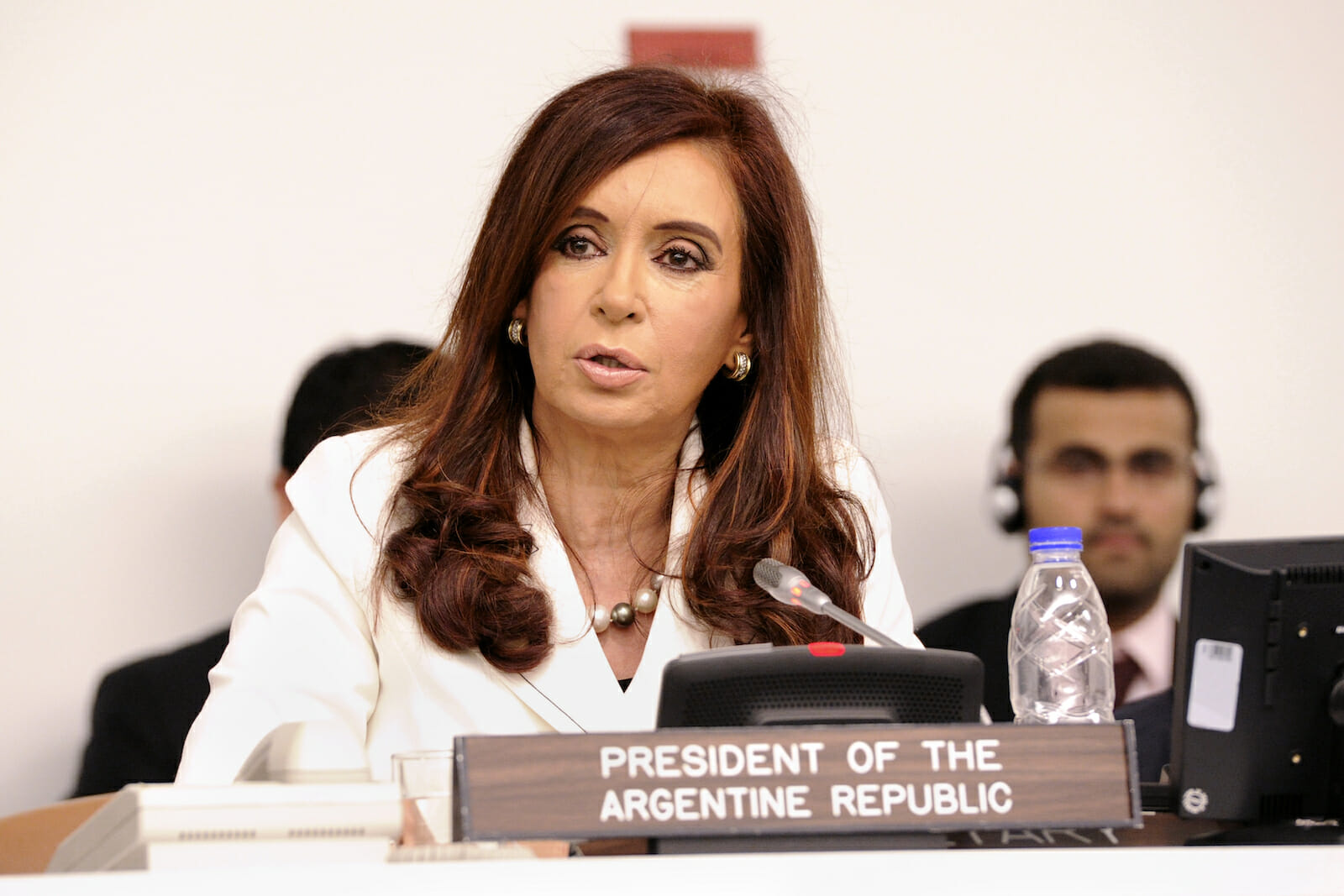
The Talented Mrs. Kirchner
Recent demonstrations against Argentine President Cristina Fernández de Kirchner have attracted widespread international attention. The protesters of the “8N Movement” hold Kirchner’s government responsible for double-digit inflation, increasing crime rates, and high profile corruption cases. Suspicions that Kirchner seeks to undermine Argentina’s democratic institutions in favor of a dictatorship are alleged by some of her opponents. She has dismissed the anti-government demonstrators as representatives of the elite, with the support of foreign and domestic right-wing media outlets. But the 8N Movement clearly is a rejection of Kirchner’s agenda from among a variety of segments of Argentina’s population, particularly from the middle and upper classes.
A common theme within the 8N Movement is that the government caters to the interests of its supporters while ignoring the remainder of society. Clearly, the standard of living for the average Argentine is deteriorating rapidly. Argentina’s inflation rate is one of the highest in the world, with some analysts believing that the actual figure is approaching 25 percent. The rising crime rate has been a major rallying cry within the Movement. According to the Organization of American States, thievery is double South America’s average rate. Protesters believe that Kirchner’s government is not concerned with the security of Argentinians, nor is it willing to address the matter in a serious way.
One of the government policies that have most enraged Kirchner’s opponents is a restriction on the purchase of U.S. dollars. Beginning in October 2011, the government only permitted Argentinians to buy limited amounts of U.S. dollars for purposes of tourism in the United States.
The government maintains that the restriction is necessary to reduce capital flight and tax evasion. According to the Wall Street Journal, the control on currency exchange has indeed reduced capital flight, but consumer confidence has fallen in the process, and certain sectors of the economy – particularly real estate – have been harmed by the restriction.
Living standards aren’t the only thing that has deteriorated under Kirchner – so has the foreign investment climate. Kirchner’s re-expropriation of Argentina’s largest oil company – YPF – has created tensions with Spain and led to harsh attacks in the international press. The nationalization of YPF ended Repsol’s 57 percent majority stake in the oil company, with the government claiming Repsol was not adequately investing in Argentina’s economy. By taking this course of action, Argentina has joined Bolivia, Ecuador, and Venezuela in expropriating privately held natural resource companies over the past decade.
Spain has taken the Repsol/YPF case to the World Bank’s International Center for Settlement of Investment Disputes (ICSID), demanding $9.3 billion in compensation for the nationalization. Interestingly, a quarter of all ICSID cases have been brought against Argentina. Argentina’s record of non-compliance with ICSID, and Kirchner’s stated refusal to compensate Repsol regardless of the body’s ruling suggest that Argentina will defy yet another ICSID ruling. U.S. President Barack Obama suspended trade preferences with Argentina in March 2012 in response to the government’s failure to pay compensation of $300 million in two ICSID disputes. The YPF case will likely continue to drive foreign investors’ unease about investing in Argentina.
This week a new law comes into effect, forcing the country’s largest media conglomerate – Clarín – to sell its cable and internet operator. According to the government, the new legislation is designed to thwart the formation of media monopolies by limiting the number of licenses that a single media group can hold. Clarín appears to have been targeted because, during Kirchner’s 2011 re-election campaign, it became the mouthpiece of the opposition. The 8N’s view is that the government’s action is a move toward authoritarianism and a violation of freedom of expression.
The 8N movement has also accused Kirchner of distracting the population from Argentina’s plethora of problems by stoking nationalism and re-invoking the Falkland Islands issue to increase her support before next year’s midterm elections. While polls indicate that the president’s popularity has sunk this year, it surged, predictably, after her recent standoff with British Prime Minister Cameron over the Islands. Argentina and the UK are not going to war over the Falklands again, so just what Kirchner hopes to achieve in the longer term is unclear, and it is certainly possible that all this will backfire on her in due course.
The Argentine Constitution limits presidents to serving only two consecutive terms, but Kirchner’s allies in Congress have lobbied to amend the constitution to permit her to run for a third term in 2015. Kirchner’s silence over whether she would run for a third term if the constitutional amendment passes have stoked suspicions that she seeks to remain in power. Voices within the 8N Movement draw parallels between Kirchner and Venezuelan President Hugo Chávez, whose government ended presidential term limits in 2009. She needs to secure at least two-thirds of the Congress for the amendment to pass.
Kirchner claims she is seeking to reverse the neo-liberal policies of the “Washington Consensus” era and create a more egalitarian society in Argentina. To pursue this agenda, the government has expanded its role in the economy by redistributing more wealth with higher taxes, imposing protectionist trade policies and increasing state ownership of the economy. By nationalizing YPF and adopting measures to limit capital flight, the government has taken on powerful domestic and foreign interests.
Her husband earned the ire of international bankers by defaulting on Argentine bonds and walking away from the global capital markets a decade ago. Given her actions to date, Mrs. Kirchner seems capable of doing that, and more. Kirchner’s opponents contend that she is playing a dangerous game, saying her policies, threaten to further isolate Argentina internationally and further derail economic growth. Whether Argentina will again win by playing the underdog, attempting to pressure wealthier countries to reform the practices of their international financial institutions to Argentina’s favor, or will instead be punished for its rebellious role, remains an open question. One thing is certain – President Kirchner doesn’t much care.

